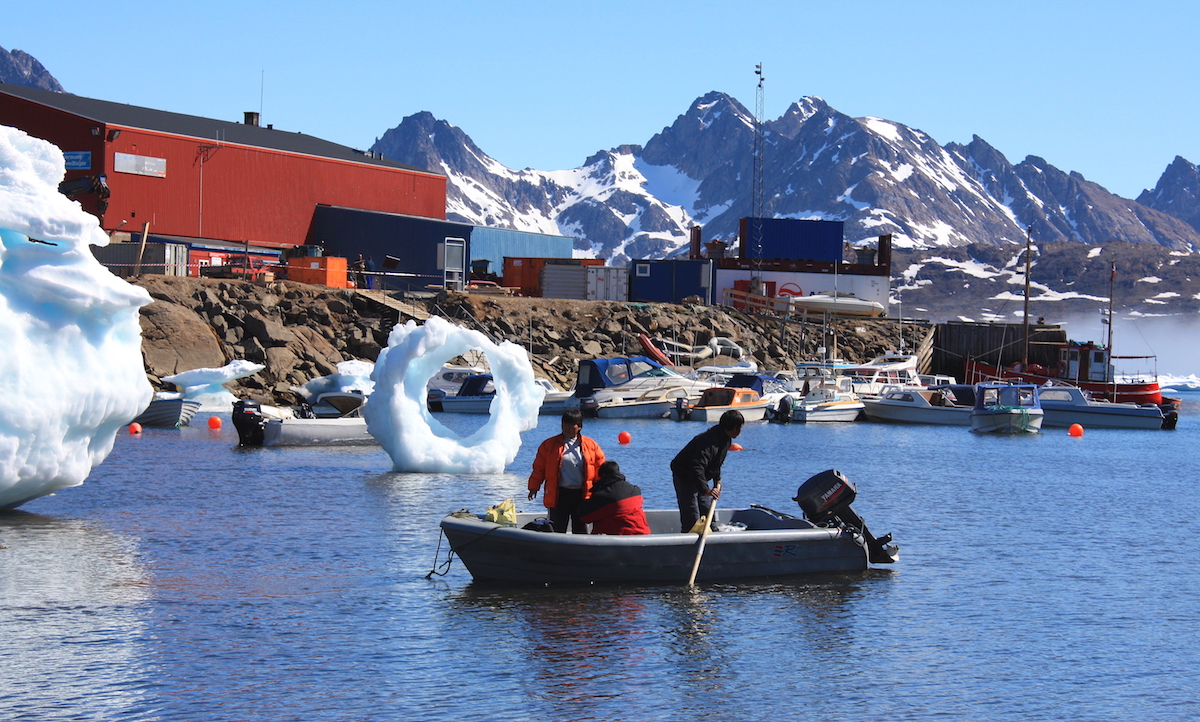Facebook faux pas fells popular Nuuk mayor
Asii Chemnitz Narup appeared to have survived criticism over an “embarrassing” level of child abuse on her watch, only to be felled by politics when she lashed out at an ally.

What started with a documentary about child abuse has ended with the resignation of the mayor of Greenland’s most populous region, which encompasses Nuuk, its capital city.
Asii Chemnitz Narup, a highly respected legislator who had held the position since 2008, officially stepped down Tuesday evening as mayor of Kommuneqarfik Sermersooq after announcing her resignation on Facebook earlier in the day.
She will be replaced by Charlotte Ludvigsen. She was seen as one of the favorites to replace Narup, despite being a relative unknown.
Narup’s decision comes as relations between her party, IA, and its ally on the regional council, Demokratiit, have decayed in the wake of a Danish TV documentary broadcast in May about massive child welfare problems in Tasiilaq, a town that falls under Kommuneqarfik Sermersooq’s jurisdiction.
The documentary detailed a situation in which half of the town’s children have some sort of family-related problem that has required the involvement of child welfare authorities. In two-thirds of those cases, the child was sexually abused. Overwhelmed by the number of cases, social workers have little chance of providing the necessary care.
[Campaign against sexual abuse aims to bring better days for Greenland’s kids]
Narup did not dispute the material presented in the documentary. Instead, she wrote in a Facebook post on May 7, the day after the documentary was broadcast in Denmark, that the statistics were common knowledge, and that they had been the impetus for the council, with the support of Demokratiit, to double spending on child-welfare programs during the past six years.
“In spite of this, we haven’t been able to definitively break the pattern of social ill, and it is deeply tragic that new generations become traumatized and struggle with the problems it results in in the form of sexual abuse, suicide and the like,” Narup wrote.
While Narup admitted the situation in Tasiilaq was “embarrassing,” she also noted that the problems there could be found throughout Greenland and the Arctic and in indigenous communities worldwide. Much of the ensuing debate arising from the documentary has focused on steps that should be taken at the national level, and whether Greenland should request additional help from Denmark to address its child-welfare problems.
Naalakkersuisut, the national administration, initially rejected those calls, but was later forced to do so by Inatsisartut, the legislature.
[Fall in suicides in Greenland reveals a more stubborn statistic]
Demokratiit had roundly criticized Narup during the past month for the situation in Tasiilaq, and last week withdrew its support for her as mayor.
Narup, according to her version of the story, initially offered to resign in order to preserve the relationship between IA and Demokratiit. The offer was rebuffed, in large part due to a widening gulf between IA and Demokratiit that has its roots in politics at the national level, where Demokratiit is allied with Siumut, IA’s traditional rival and the party that currently holds the premiership.
The final straw, say members of Demokratiit, came after Narup, on June 3, criticized the party for continuing to work with Siumut given what she considered to be its mismanagement of the economy.
“I don’t understand why there are parties that prop up an administration that can neither manage the economy nor address basic issues,” Narup wrote on Facebook.
Justus Hansen, a resident of Tasiilaq representing Demokratiit on the Sermersooq council and in Inatsisartut, told KNR, a broadcaster, that the post left the party with no other choice but to break its relationship with IA.
“Calling us out on Facebook like that,” Hansen said, “it just wasn’t right.”